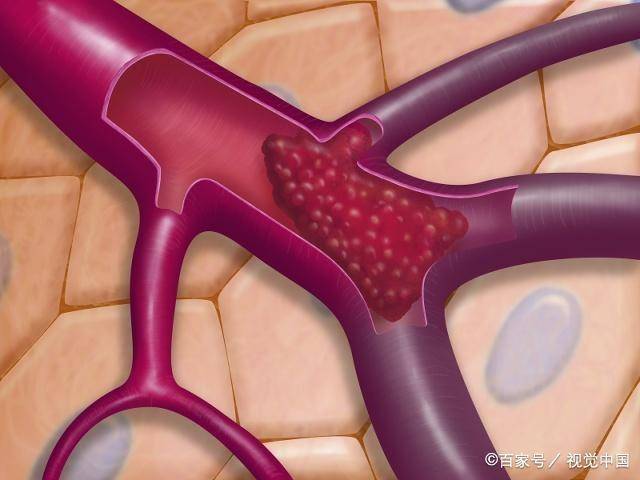Everyone knows that the state of blood affects our health. If our blood vessels are blocked, blood circulation is hindered, it will cause a series of physical diseases, seriously affecting our health.
Actually, before thrombosis occurs, our bodies will also send signals. When you have the following symptoms, you must pay attention!
1. Skin appears pale discoloration resembling bruising
If you find that your skin appears red, similar to faded bruising, and feels warm to touch, it is likely that red streaks have appeared around your veins, which could be an early sign of thrombosis.
2. Frequent fainting
Friends with high blood pressure, beware. If you often feel dizzy, and it is quite severe, fainting several times a day, you must go to the hospital to check for thrombosis. Generally, thrombosis patients experience severe fainting after waking up in the morning.
3. Often feel chest tightness and pain
Why do thrombosis patients always feel chest tightness in the early stage? This is because clotted thrombi in the blood vessels can enter the lungs with the blood, causing blockages and pain. This chest pain occurs more often in people who are not active, so we should engage in more outdoor activities.
If your body shows abnormalities and unfortunately develops thrombosis, do not worry. Besides seeking timely medical treatment and medication therapy, we should also know how to adjust body health with food.
Frequently eat these seven foods to “reduce stress”
1. Kiwi
Kiwi fruit contains rich arginine, which has a good effect on blood circulation. Additionally, the unique antioxidants can prevent strokes and heart attacks.
2. Citrus fruits
Citrus fruits are beneficial to the body in many ways. They are rich in vitamins, reducing the risk of strokes. Regular consumption can promote metabolism, and soaking citrus peel in water can preserve cardiovascular health.
3. Plums
Summer plums are sweet and loved by many, but should not be consumed excessively. Scientists have found that plums contain enzymes like fibrinolytic enzymes, which dissolve small clots. The components in plums, such as tannin, glutamine, and serine, are unique and beneficial for liver health and blood circulation.
4. Ginger
In addition to fruits, ginger can also inhibit clot formation due to gingerol’s antiplatelet effect.
5. Onions
For those who do not enjoy ginger, onions are a good alternative. Quercetin in onions replaces gingerol and prostaglandins in onions increase blood vessel diameter, diluting the blood for better circulation.
6. Green tea
Green tea has anti-clotting functions. Catechins are essential in enhancing blood vessel elasticity, preventing ruptures. Individuals with high lipids and cholesterol should develop a habit of drinking green tea daily.
7. Black fungus
Commonly prepared as cold dishes, black fungus’s taste is appreciated while possessing anticoagulant properties. Adenosine nucleosides in black fungus have antiplatelet aggregation effects, lasting up to 8 hours, showing its strong anti-thrombotic function.
It is hoped that individuals with thrombosis can adopt these suggestions. It is emphasized once again that if you have suffered from a cerebral thrombosis, do not treat health supplements as medications for thrombosis. The preventive effects of related health supplements are “too late” for thrombosis patients, so it is crucial to use drugs reasonably under medical guidance.


